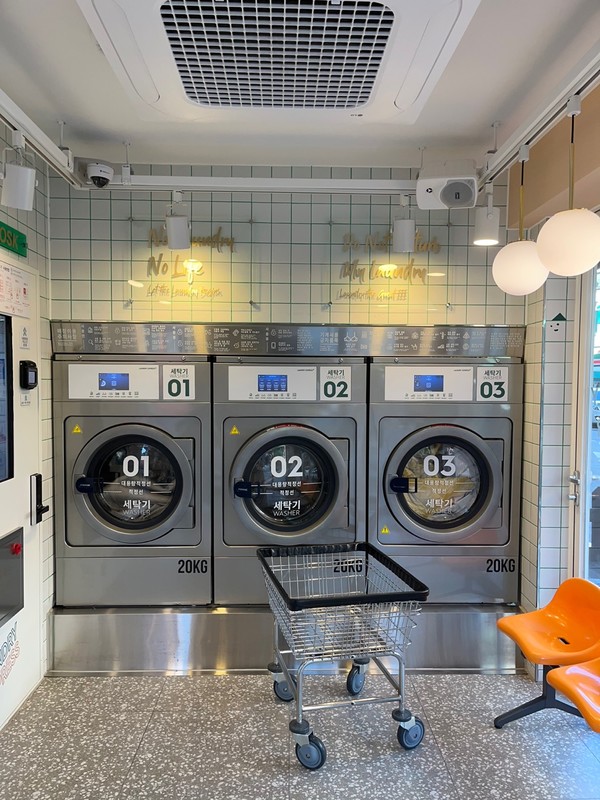
The proportion of single-person households in Korea is high these days. According to the results of the 2020 Population and Housing Census conducted by the Korea National Statistical Office, single-person households in Korea account for 31.7% of the total number of households. It is increasing rapidly, exceeding 23.9% in 2010 and 27.2% in 2015. The reasons for the increase in single-person households are various, such as an extremely low birth rate and changes in an outlook on marriage.
In Korea, laundromats are increasing in university towns, gosiwons(accommodations for students studying for exams), and villages where these single-person households are often seen. Single-person households often do not have washing machines at home because they minimize household chores and pursue minimalist life. They can do laundry at a reasonable price without their own washing machines by using laundromats.
A laundromat means a place where you pay to use machines that wash and dry clothes and customers pay for it. Payment is mainly made using rechargeable cards or coins. We can usually find laundromats near college and residential areas. Most laundromats are available 24 hours a day and offer free Wi-Fi for customers waiting for laundry. Some places have TV, books, and magazines for the convenience of customers for not to waste time.
Laundromats are useful for single people who do not have a washing machine at home or for those who live in different places for a while. However, the risk of laundry loss is prevented through CCTV, but is difficult to be completely solved. In places with poor security, there is even a risk of damage to the store.
Laundromat's popularity will remain for a while, as single-person households increase and people want to keep minimal items at home. Through differentiation, each laundromat has a slightly different charm, while strengthening security so that customers can use it more freely.

